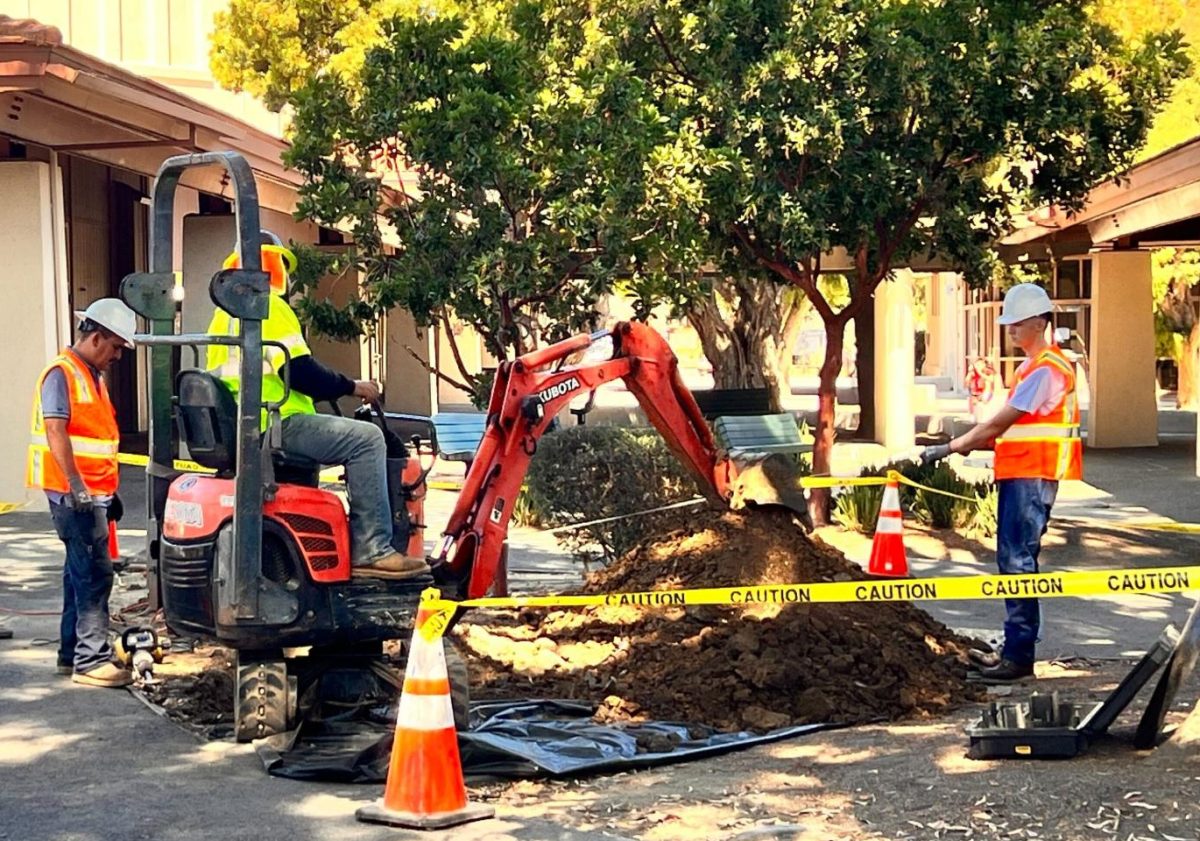Working from an inaccurate map, a construction crew installing underground pipes around campus accidentally cut a major power cable and water line during the first week of school, forcing teachers and administrators to adapt on the fly.
Principal Brent Kline said the installation of these underground pipes throughout campus is meant to connect all the buildings to centralize the fire alarm system.
“This campus has been built over the years, obviously, and this is something that’s never been done that we need to get taken care of so that it’s a more complete system,” Kline said.
Kline also said the electrical outage in the days leading up to the first day of school had a significant impact on all teachers and administrators.
“We all had to readjust,” Kline said. “I know things were either rescheduled or canceled in terms of events. There were a lot of creative adjustments done in order to ensure that we started school on time on Wednesday morning.”
According to U.S. Government teacher Austin Davis, part of the reason the power was out on campus for so long was the difficulty in getting replacement parts.
“The line itself is not something that’s easy to come by, as they had to get it from out-of-state and install it here, so that’s why it took a couple of days for them to get the power back on,” Davis said.
Davis also said the first few days of school were especially difficult because teachers typically conduct training and preparation on the Monday and Tuesday before students come on Wednesday.
“I (wasn’t) able to complete my trainings because I usually do them at school on the teacher’s work day and I just get them done then,” Davis said.
“So now (the administration) has allocated other times during what would normally be meeting times for us to do those trainings.”
The campus water shut-off also affected many student athletes, including sophomore Andrei Seletskiy who is on the boy’s cross country team.
“During practices, (the water shut-off) made it significantly harder to train and recover properly, and we get dehydrated from the intensity as well,” Seletskiy said.
Freshman volleyball player Juliet Frick agreed.
“During volleyball practice, water is not always available, which can be difficult if you forget your water bottle or something,” Frick said. “Using restrooms aren’t always available, so that’s inconvenient.”
Additionally, for student counselors running Camp MAC, Paly’s journalism camp for rising 8th and 9th graders the week before school, the lack of power caused a shift in the curriculum.
Senior and camp counselor Austin Eng said the camp leadership team was forced to adapt quickly to the change.
“In terms of scheduling, it definitely threw us a loop,” Eng said. “Because we couldn’t use our computers, it turned more into traditional summer camp activities … It was more of an off-technology bonding, like how a traditional camp would be like, and it acted more celebratory after we finished everything.”
English teacher Lizzie DeKraai also said teachers had a hard time getting ready for the first day of school during the unexpected power outage.
“We were putting our classrooms together in the dark, our hotspots for Wi-Fi were unreliable,” Dekraai said. “It was just not a functional working environment. Those days are really when we get so much work done…so overall it was just discombobulating. The first couple weeks, I felt like I was just running behind, and I didn’t have everything prepared like I wanted it to be.”



